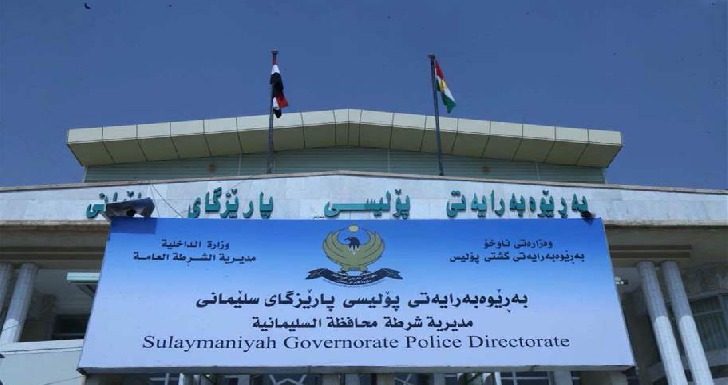FTC Appeals Activision Blizzard Acquisition: A Deep Dive

Table of Contents
The gaming world is captivated by the ongoing legal battle surrounding Microsoft's acquisition of Activision Blizzard. The Federal Trade Commission (FTC) has appealed the deal, igniting a fierce antitrust debate with far-reaching consequences for the video game industry and its players. This in-depth analysis delves into the core arguments, legal precedents, and potential outcomes of this landmark case.
The FTC's Case Against the Merger
Concerns Regarding Anti-Competitive Practices: The FTC's central argument rests on the claim that the merger will substantially lessen competition within the video game market, ultimately harming consumers. This concern stems from the elimination of a major independent competitor and the potential for Microsoft to abuse its increased market power.
- Reduced Competition in the Console Market: The FTC contends that Microsoft's acquisition would grant it undue influence over the console market, potentially leading to stifled innovation and inflated prices for gaming consoles and accessories.
- Impact on Game Pricing: A significant concern is the possibility of Microsoft raising prices for popular Activision Blizzard titles, such as Call of Duty, making them less accessible to a wide range of gamers. This could particularly affect budget-conscious players.
- Stifling of Innovation: The FTC suggests the merger could stifle innovation by reducing incentives for Microsoft to develop competing games and technologies, potentially leading to a less diverse and dynamic gaming landscape.
The Role of Call of Duty and Other Key Franchises: The FTC's case heavily emphasizes the critical role of Activision Blizzard's key franchises, most notably Call of Duty, in shaping the competitive landscape.
- Call of Duty's Market Dominance: Call of Duty's immense popularity and market share are highlighted by the FTC as a significant source of concern. Its influence on console sales and player choices is undeniable.
- Exclusive Content Concerns: A major point of contention is the potential for Microsoft to make Call of Duty and other Activision Blizzard titles exclusive to its Xbox ecosystem, disadvantaging players on competing platforms like PlayStation.
- Impact on Other Activision Blizzard Franchises: The FTC's worries extend beyond Call of Duty to encompass other lucrative franchises like Candy Crush, World of Warcraft, and King's portfolio of mobile games, arguing that their inclusion in the merger further strengthens Microsoft's market position.
Evidence Presented by the FTC: The FTC has presented a range of evidence to support its claims, including internal documents, market analyses, and expert witness testimonies.
- Internal Microsoft Documents: Alleged internal communications from Microsoft have been cited as evidence of the company's strategies for leveraging the acquisition to gain a competitive edge.
- Market Analysis Reports: Independent market research reports have been submitted to the court to bolster the FTC's arguments about the reduced competition resulting from the merger.
- Expert Testimony: Economists and industry experts have provided testimony outlining the potential negative consequences of the acquisition for competition and consumers.
Activision Blizzard's Defense
Arguments Against Anti-Competitive Behavior: Activision Blizzard and Microsoft have vigorously countered the FTC's claims, arguing that the merger will ultimately benefit consumers through enhanced innovation and a wider selection of gaming experiences.
- Claims of Increased Competition: They contend that the merger will actually boost competition in the cloud gaming market, leading to increased innovation and competition.
- Benefits to Game Developers: Microsoft emphasizes the potential advantages for independent game developers through access to its resources and technology.
- Denial of Anti-Competitive Intent: They strongly deny any intention of leveraging the acquisition to stifle competition or harm consumers.
Proposed Remedies and Concessions: To address some FTC concerns, Microsoft has offered concessions, including long-term agreements to maintain Call of Duty's availability on competing platforms.
- Long-Term Call of Duty Agreements: Microsoft has committed to keeping Call of Duty available on PlayStation and other platforms for a considerable period, aiming to alleviate concerns about exclusivity.
- Other Concessions: Other potential concessions have been mentioned, though the specifics remain subject to ongoing negotiations and are not yet publicly available.
The Importance of the Deal for Activision Blizzard's Future: For Activision Blizzard, the acquisition is viewed as strategically vital, promising access to Microsoft's extensive resources and technological expertise, boosting its potential for future growth.
The Legal Landscape and Potential Outcomes
Previous Antitrust Precedents: The FTC's appeal will be assessed against previous antitrust cases, creating a significant precedent for future mergers and acquisitions in the tech and gaming sectors.
Potential Impact on Future Mergers and Acquisitions in the Gaming Industry: The outcome of this appeal will profoundly impact the regulatory landscape for future mergers and acquisitions within the gaming industry, affecting investment decisions and deal structures.
Timeline and Next Steps in the Legal Process: The legal process is expected to be lengthy, involving further court hearings and possible appeals. A clear timeline remains uncertain, but close observation of legal proceedings is crucial to understanding the implications.
Conclusion: The Future of the Activision Blizzard Acquisition and Implications for the Gaming Industry
The FTC's appeal of the Activision Blizzard acquisition represents a complex antitrust battle with major implications for the gaming industry's future. The arguments from both sides underscore the critical considerations of competition, innovation, and consumer well-being. The final decision will significantly shape the regulatory landscape for future mergers and acquisitions within the gaming market. Stay informed about further developments in the FTC's appeal of the Activision Blizzard acquisition to stay abreast of this crucial case and its ramifications.

 Creating Voice Assistants Open Ais 2024 Developer Event Highlights
Creating Voice Assistants Open Ais 2024 Developer Event Highlights
 Jadwal Moto Gp Argentina 2025 Catat Waktu Sprint Race Minggu Pagi
Jadwal Moto Gp Argentina 2025 Catat Waktu Sprint Race Minggu Pagi
 Almthm Bqtl Asrth Wdfnhm Fy Frnsa Melwmat Jdydt
Almthm Bqtl Asrth Wdfnhm Fy Frnsa Melwmat Jdydt
 Donald Sutherlands Performance In The Pride And Prejudice Re Release A Deeper Look
Donald Sutherlands Performance In The Pride And Prejudice Re Release A Deeper Look
 Sketch Controverse Du Grand Cactus Le Csa Tranche Sur La Scene Du 128e Sexe
Sketch Controverse Du Grand Cactus Le Csa Tranche Sur La Scene Du 128e Sexe
